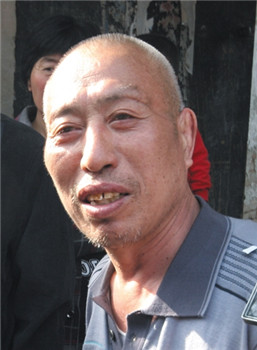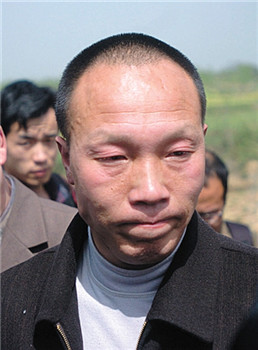Righting wrongful convictions in China
| Editor's Note |
China has redressed a series of wrongful conviction cases in recent years, some of which involved miscarriages of the death penalty. A turning point was in 2005, which saw the revisiting of several major wrongful convictions.
Xiao Yang, former president of the Supreme People's Court, reported in 2005 to the National People's Congress that his office had discovered that altogether 2,162 people had been wrongfully convicted of crimes they did not commit.
As China's rule of law campaign gains traction, further measures to improve the country's legal system demand consideration.
| Major Redressed Cases |
Defendant | Place | Charge/Verdict | Date of reversal | Reason | Final verdict | Defendant follow-up | Forced confession |
| Huugjilt | Inner Mongolia Autonomous Region | Rape and murder; death penalty | December 15, 2014 | Unclear facts, insufficient evidence, prime suspect resurfaced | Innocent | Huugjilt was executed on June 10, 1996. His parents have filed for State compensation. | The Higher Court of Inner Mongolia Autonomous Region: investigation pending |
| Wang Benyu | Inner Mongolia Autonomous Region | Rape and murder; death penalty with reprieve | July 2013 | Suspect caught | Cleared of murder, harboring a criminal charges | Received 1.5 million yuan ($240,000) in compensation from State after nearly 19 years in prison | Wang said he was forced to confess under torture. A request for an official response went unanswered. |
| Zhang Hui, Zhang Gaoping | Zhejiang Province | Rape and murder; Zhang Hui: death sentence with two-year reprieve; Zhang Gaoping: 15-year prison term | March 26, 2013 | Insufficient evidence; DNA evidence shows the possibility of another suspect. | Innocent | Around 1.11 million yuan ($180,808) each for their 10 years spent in prison | Both Zhang Hui and Zhang Gaoping said they were forced to confess under torture. Illegal evidence collection can not be ruled out, according to court prosecutors. |
| Zhao Zuohai | Henan Province | Murder; death sentence with two-year reprieve | May 9, 2010 | Alleged victim was found alive | Innocent | Received 650,000 yuan ($95,500) in compensation from State for spending 11 years in prison | Confession coerced under torture: official |
| Teng Xingshan | Hunan Province | Murder; death sentence | January 18, 2006 | Alleged victim was found alive | Innocent | Teng was executed on January 28, 1989. In 2005, His family received 666,660 yuan in compensation from State. | Teng said he was forced to confess under torture, but there is no official response. |
| She Xianglin | Hubei Province | Murder; death sentence with reprieve | April 13, 2005 | Alleged victim resurfaced alive Innocent | Innocent | Acquitted and paid about 700,000 yuan ($107,813) in compensation for 11 years in prison. | According to She, he was forced to confess under torture. They did not believe She Xianglin was tortured into confessing, according to a source at the Jingshan county public security bureau. |
Summary:
In the six cases, all defendants were accused of murder, two of which also faced rape charges. Most defendants claimed they were tortured to confess the alleged crimes.
Three wrongful convictions were overturned due to the reappearance of the alleged victims, two were cleared after the later capture of the real murderers and one involved the emergence of new evidence.
Review:
Cases like the one that led to Huugjilt 's hasty and seemingly wrongful conviction and execution are at least one reason why the Supreme People's Court on January 1, 2007, regained the power to review all death penalty decisions made by lower courts. The supreme court had been absent in reviewing death sentences for nearly three decades.
Chinese court officials and legal experts must be on the lookout for problems in the handling of criminal cases to prevent and rectify wrongful convictions.
Shen Deyong, vice head of the Supreme People's Court (SPC), was addressing a meeting on criminal justice following the wrongful execution of Huugjilt.
Shen stressed that various principles, such as sentences compatible with criminal liability, equal opportunities to prosecution and defense, and rulings based on evidence, must be fully implemented, and procedural justice must be guaranteed.
| Case Details |
Huugjilt case
| Timeline: |
Source:.infzm.com
-Related news:
Impeccance announced 18 years after man executed for rape, murder
An impeccance verdict was given on Monday at a retrial 18 years after a man was sentenced to death and executed in a controversial 1996 rape and murder case in north China's Inner Mongolia Autonomous Region.
Retrial for 1996 murder case begins
The higher court in North China's Inner Mongolia Autonomous Region on Thursday officially began the retrial of a controversial 1996 rape and murder case.
Executed for efficiency
Seven years after a serial killer confessed to the crime for which their teenage son was executed, his aging parents are still trying to get the court to re-open the case.
-Review
Posthumous exoneration attests to endeavor for justice
Huugilt's family and most of the public have welcomed the posthumous pardon. We have seen from the case the problems of the legal system as well as hope. We are living in a country plagued with a myriad of loopholes, but the government and the public have the willingness to improve the country.
Yi Yanyou, professor from the Law School of Tsinghua University "Judicial authorities were highly efficient in sentencing people to death, which showed their indifference to life, and the ease with which they can trample a defendant's procedural rights," said Yi.
Zhang Qingsong, a lawyer with Shangquan Law Firm in Beijing
"It was a period when many criminal cases were handled like a political campaign, which resulted in a series of unjust and wrongful convictions. I feel so heartbroken by it," said lawyer Zhang, "No one wants to take responsibility for the mistakes in the case, as the people who push the case might face severe punishment."
Wang Benyu case
| Timeline: |
Source: newssc.org
-Related news:
China's judges can expect more judicial independence with an upcoming key political meeting expected to spearhead unprecedented judicial reform, experts said.
-Review:
Jiang Chunyuan, commentator
In this case, it is not enough to just hold several police officers and investigators accountable. It is not only the responsibility of the public security department, but also the procuratorate and courts. Furthermore, it can be traced to existing problems in our judicial system. Zhang Biao, a retired prosecutor who helped in reversing another wrongful verdict, said that a wrongful conviction usually goes through public security bureau, the procuratorate and the courts. These three units have their own responsibilities and should check and balance each other to avoid mistakes. However, in some places, these departments are so intertwined that they fail to effectively provide mutual oversight. All the while, the principle of innocence until proven guilty should be upheld.
Source: xinhuanet.com
Zhang Hui / Zhang Gaoping case
| Timeline: |
Source: news.changsha.cn
-Related news:
Efficient injustice
Last Tuesday, when 49-year-old Zhang Gaoping and 38-year-old Zhang Hui heard the judge announce they were acquitted after serving 10 years in jail for a wrongful charge of rape and murder after forced confession, they couldn't believe their ordeal was finally over.
Men compensated after 10 years of wrongful imprisonment
A court in East China has decided to compensate two men after they were acquitted of rape charges that landed them in jail for 10 years, court sources said Monday.
-Review:
China outlines measures to prevent wrongful judgments
China's Supreme People's Procuratorate (SPP) has outlined measures to prevent wrongful and unjust judicial decisions.
The strictest evidence standards should be applied in cases in which the death sentence can be imposed, the circular said.
Criminal suspects should not be convicted if there is no other evidence aside from the suspect's own confessions, according to the document.
Suspects involved in major bribery cases should be guaranteed their rights to meet with their lawyers, it said.
The SPP also prohibited the extortion of confessions by means of torture, threats or enticement.
New guideline to address wrongful verdicts
Chinese authorities have for the first time issued a guideline on preventing unjust or wrongful judgments, following the emergence of several court scandals.
The guideline stresses that for cases in which there is not enough evidence to prove a suspect's guilt beyond a reasonable doubt, the court should stick to the principle of reserving punishment and pronouncing defendants not guilty, rather than issuing a judgment based on insufficient evidence.
Top Chinese procurator vows to better protect rights, prevent wrongful judgements
Top Chinese procurator on Monday pledged to work harder to safeguard human rights in the country's lawful crackdown on crimes and prevent wrongful and unjust judicial decisions.
Prosecutors dropped the arrests of 100,157 people and dropped prosecution of 16,427 people last year on grounds of insufficient evidence and that their actions failed to constitute crimes, according to Cao Jianming, Procurator-General of the Supreme People's Procuratorate.
Zhao Zuihai case
| Timeline: |
Source: Xinhuanet.com
-Related news:
Innocent man spent 11 years in jail
A farmer in Henan Province who was found guilty and jailed for murder more than a decade ago has been exonerated after his "murder victim" was found alive and living at home, the Higher People's Court in the province announced Sunday.
Cops arrested, accused of torture
A man who was wrongly jailed for 11 years on charges of murder has been compensated 650,000 yuan ($95,500), and two police officers who tortured a confession out of him more than a decade ago have been arrested, though a third officer remains at large, authorities in central Henan Province said Tuesday.
Judges put on leave over China's 11-year wrong imprisonment
Three judges at a central China court have been put on leave over a wrong conviction that left an innocent man behind the bars for 11 years, authorities said Friday.
-Review:
Misjudgment Day marked as real killers of Zhao Zuohai case emerge Timeline:
Henan police bureau Wednesday confirmed the arrest of the real killers and accomplices of a murder case, for which farmer Zhao Zuohai was tortured and framed. Zhao's fellow villager, who was thought to have been murdered and decomposed, reappeared alive after Zhao had been in jail for 11 years. The bureau also decided to mark the day of Zhao's release as "The Misjudgment Day", to warn all levels of court officials to examine and discipline themselves.
Wrongfully jailed farmer in Henan Province was tortured: official
A recent revision on the country's State compensation law said that any wrongly detained suspect could apply for mental compensation, which will come into force on December 1 this year. However, Zhao's case will be handled under current law, which does not mention mental compensation issues.
Court acquits murder suspects due to lack of evidence
The Supreme People's Court issued a document on November 21, 2013 on setting up and improving a mechanism to prevent wrong judgments in criminal cases, illegal evidence and defendant testimony obtained through torture or other illegal methods, such as forcing the accused to suffer from extreme temperatures, hunger and fatigue.
Teng Xingshan case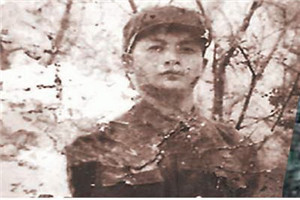
Photo: ifeng.com
1. April, 1987 The body of a dismembered woman was discovered in a river in Mayang Miao Autonomous county, Hunan Province. Police later identified the woman as Guizhou native Shi Xiaorong.
2. December 6, 1987 Police detained Teng Xingshan, a butcher in nearby Malan village, for questioning. December 13, 1988 Teng was given a death sentence by the Intermediate People's Court in Huaihua, Hunan Province. Teng appealed the decision, which was upheld.
3. January 28, 1989 Teng was executed.
4. In 1993, Shi Xiaorong, the alleged murder victim, returned her hometown in Guizhou Province. Shi claimed she was kidnapped in 1987.
5. January 18, 2006 The Higher People's Court in Hunan Province reviewed the case and posthumously declared Teng innocent.
Source: mzyfz.com
-Related news:
Woman allegedly "murdered" reappears after killer executed
A Chinese woman believed to be killed in the 1980s reappears 16 years after the alleged killer was executed, urging judicial authorities to rectify the case.
She Xianglin case
| Timeline: |
Source: Guangzhou Daily/hsw.cn
-Related news:
Compensation left in legal limbo
She Xianglin served 11 years in prison for murdering his wife who was later proven to be still alive. He was declared innocent and released after a retrial by Jingshan People's Court in Hubei Province on April 13, 2005.
Legal expert says murder case not ideal symbol of campaign to abolish death penalty
She Xianglin, a man from Hubei Province, was freed in 2005 after 11 years in prison. It turned out he was wrongly convicted of murdering his wife.
-Review:
More stringent rules for court evidence to avoid miscarriage of justice
Five ministries and judiciary organs jointly released two sets of legal rules Sunday, adjusting the criminal evidence system in a bid to prevent further miscarriages of justice.
According to the new rules, the facts and evidence used to convict must be indubitable and sufficient, and evidence in doubt or obtained illegally must be excluded.
More caution over death penalty
The country's top court said Tuesday that all the country's death penalty cases will carry two years reprieve with the exception of those criminals who are condemned to immediate execution.
In its annual report, the Supreme People's Court said it would continue to ensure that only small numbers of extremely serious criminals are executed. Those who are not sentenced to immediate execution will get two years' suspension of the death penalty, according to a report of the People's Daily website Tuesday.
Enlightenment building for rule of law
It has to be admitted that the foundation of Chinese judicial justice is not solid and society can sometimes exert a useful impact on judicial decisions, although by no means always. The court can always reject the interference of public opinion that is sometimes "a little rude."
Web Editor: liyingxa@globaltimes.com.cn
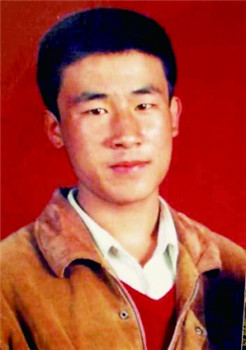
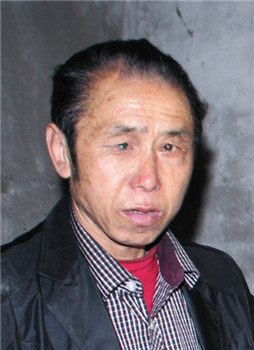
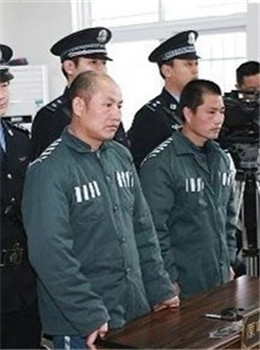 Photo:CZTV.com
Photo:CZTV.com